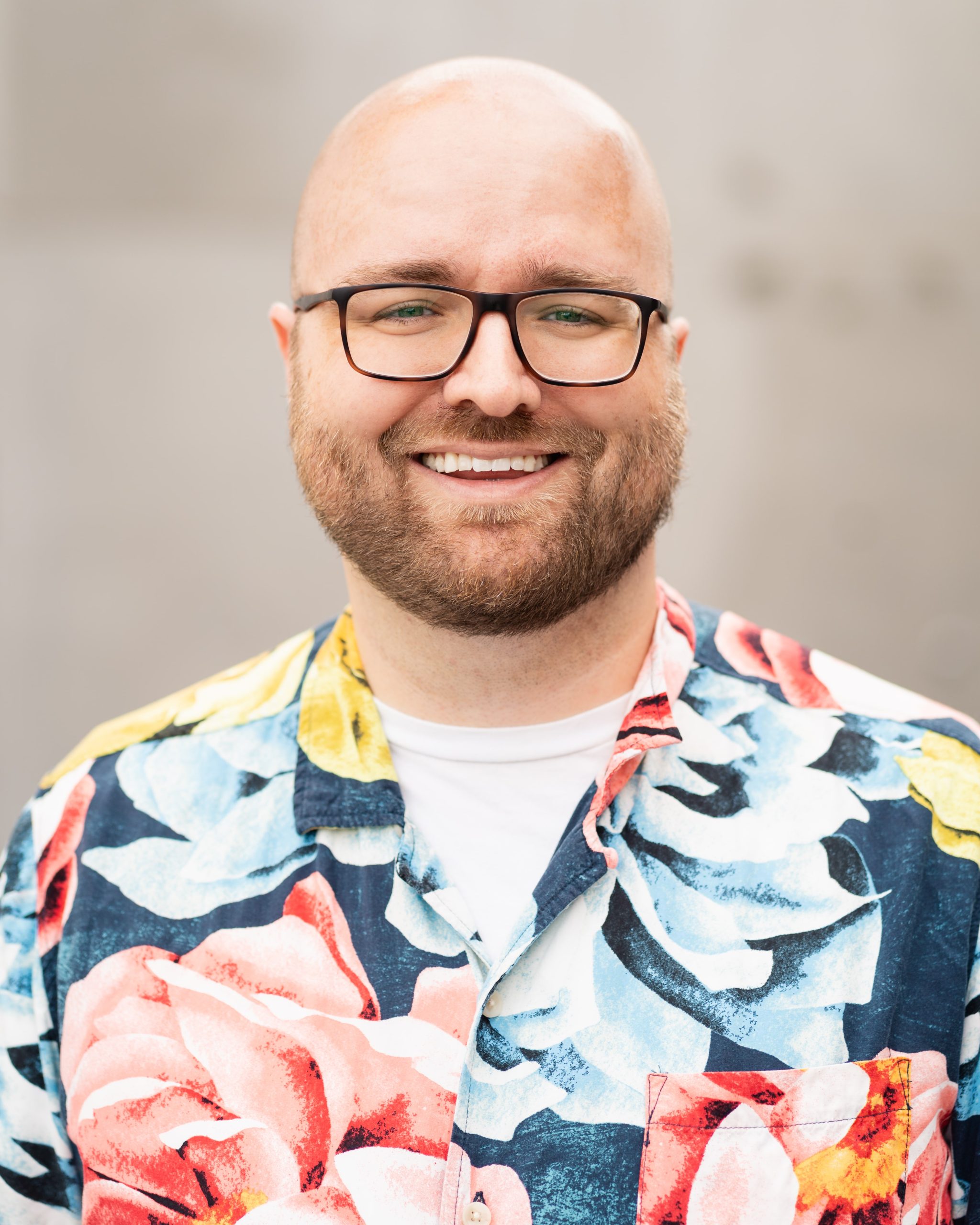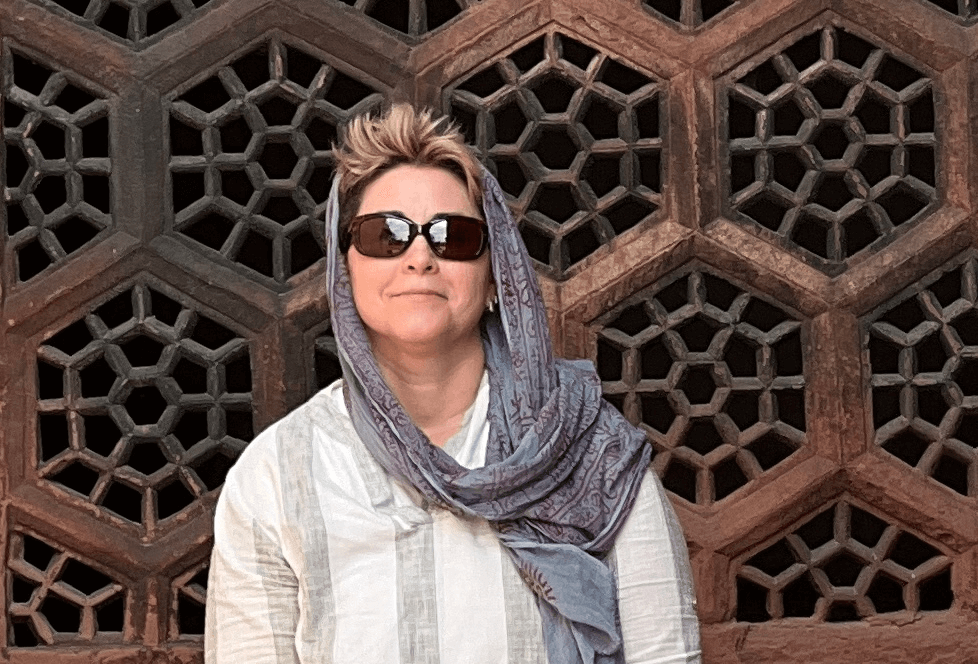LaTeS is a biannual workshop at which K-12 language teachers can share ideas and issues that are specific to their community, and leave with methods and materials that they can implement into their own classrooms. Arizona Continuing Education is available to those who participate. Read below to see the topics presented in 2024.
Spring 2024 LaTeS, April 27:
Creating an LGBTQ+-Inclusive Learning Environment for All Learners in the Language Classroom and Beyond
Presented by Ben Fisher-Rodriguez (Seattle, Washington)
Click the button below to access materials provided by the presenter.
Description:
More than half of LGBTQ+ students nationally hear negative remarks about their gender and/or sexuality at school, according to a survey by GLSEN. Bullying, harassment, and intimidation compromise a student’s ability to flourish academically, socially, and personally. And LGBTQ+ students are 4 times more likely to commit suicide than their straight-identified peers.
And: All students, no matter who they are, benefit from an inclusive learning environment. The choices we make as educators can help prepare learners to meet the challenges of the “authentic” world, as their authentic selves.
We, as teachers, work our hardest to make complex topics and language comprehensible to our students. For some teachers, the present discourse about genders and sexualities is brand new and – incomprehensible. In this workshop, definitions, clarifications, and suggestions will be provided for creating an inclusive classroom environment for all students. Ideas will be applicable from daily interactions to bigger picture curricular decisions.
Participants will identify areas where they want to learn more about how issues of gender and sexuality are handled linguistically and/or culturally in their Target Cultures, and make a plan to fill in gaps in their knowledge. In addition, they will reflect on the inclusivity of the learning environment in their classrooms in writing or in a discussion. Finally, participants will plan to modify at least 2 units they already teach to be more inclusive of LGBTQ+ people, communities, and issues.

About the Presenter:
Ben Fisher-Rodriguez is a high school German and Spanish teacher located in Seattle, WA. He has presented at national, regional, and local conferences on lesson planning, high-leverage teaching strategies, and issues of LGBTQ+ inclusion. Ben is a German Embassy Teacher of Excellence, the Washington Association for Language Teachers (WAFLT) Teacher of the Year for 2022, and the Pacific Northwest Council for Languages (PNCFL) Teacher of the Year for 2023. He was among five finalists for the ACTFL 2024 Teacher of the Year. He blogs at MrFisherSays.com and is on Twitter @mrfishersays.
See what Arizona teachers had to say about LaTeS!
“The questions for discussion and the discussion part was very beneficial.”
“Helpful resources and networking!”
“The facility was impressive, especially with the 4 screens, the presenter was knowledgeable, organized and sensitive to his audience. The materials was important as were the activities he used. The staff involved in supporting the presentation were friendly and helpful and, I must add, the lunch was very impressive! Thank you for providing this opportunity to educators in Arizona. Sadly, it should be required of all educators to have this experience.”
“Incorporating LGBTQIA+ stories into the curriculum.”
“Knowledge about inclusive language.”
Fall 2024 LaTeS, November 2:
Mindfulness Practices for Creating an Inclusive Classroom
Presented by Dr. Angelika Foerst (Chandler High School)
Click the button below to access materials provided by the presenter.
Description:
This workshop will focus on Mindfulness Practices for Creating an Inclusive Classroom. The central questions to be explored are: In what ways can mindfulness practices increase language acquisition through creating an inclusive classroom environment? What is the connection between students’ interest, self-esteem, attitude, motivation, and confidence and language acquisition? Merging the ancient Mindfulness Practices of India with Stephen Krashen’s Theory of the Affective Filter, participants will examine their process for gauging student interest in their lessons/units and how exercising mindfulness practices in their daily lives can lead to increased classroom engagement. The goals for this workshop are threefold: 1) Determine what qualities are present in an inclusive classroom. 2) Identify the foundational practices, supportive practices, and instructional practices available to students that foster inclusivity. 3) Explore the connection between the physical environment, the instruction, and the state of consciousness of the instructor to language acquisition. This is a hands-on workshop (intended for the open-minded) that will provide you practical everyday tools (pranayama, asana, Kriya, mudras, and mantras) that will positively impact the way in which you interact with your students, thereby lowering your students’ affective filters, and thus, increasing language acquisition. Several of the activities involve moving around the room; however, the spacing of the room will allow for full participation by all who attend. Lastly, time for independent and/or group work will be given. Please bring your laptops, etc. With that said, there will be several activities in which you will be asked to fully unplug. Phones on silent mode/do not disturb would be greatly appreciated.

About the Presenter:
Dr. Angelika Foerst is a graduate of Arizona State University holding a Bachelor’s in Secondary Education: French/Spanish, a Master’s in Curriculum and Instruction: Bilingual Education, and a Ph.D in Curriculum and Cultural Studies. This is her 26th year teaching French and Spanish for the Chandler Unified School District. Recently, she was selected as a participant in a Fulbright-Hays Group Project Abroad project funded by the U.S. Department of Education, through which she spent five weeks in India studying “Mindfulness Practices in a Materialistic World”. An active practitioner of yoga and meditation for over 12 years, Angelika ventured to Rishikesh to study Eastern Science and Traditions at Sattva Yoga Academy in June 2023. Through practicing what she learned abroad, she quickly observed how her interactions with her students improved creating a more inclusive classroom environment. “The more I incorporate mindfulness practices into my daily life, the more I am convinced that in the seat of the teacher my ability to hold space for my students has positively enhanced their linguistic ‘playfulness’ in my classroom.”
LaTeS Testimonials!
I attended the Language Teacher Symposium (LaTeS) Fall 2024 hosted by The Center for Educational Resources in Culture, Language and Literacy as a virtual participant. The presentation by Angelika Foerst, Mindfulness Practices for Creating an Inclusive Classroom!, provided a great deal of food for [thought] and consideration in my own language teaching practice. I will be able to use what I have learned in this session to further meet my own teaching goals.
I am constrained in what content I can teach and discuss in class by Texas House Bill 3979, Senate Bill 3, and local school district book bans. However, some parts of this presentation I will take away and apply to my own teacher mindfulness practice.
This includes include the concept of santosh, or contentment for no reason. I believe I have experienced this, but lacked the vocabulary to describe it. As a result of my new knowledge form the symposium, I hope to further cultivate this quality in myself and model it at school for my diverse learners.
While I’m still an MPhil scholar, I am eager to start integrating mindfulness techniques into my future classes. Simple practices, like beginning with a brief moment of calm or encouraging students to express their thoughts openly, seem powerful in fostering both focus and a sense of belonging. This symposium has motivated me to embrace these practices with a deeper awareness of their roots and an aim to create a more mindful and inclusive space for learning. I look forward to building classrooms where students not only learn but also feel a genuine sense of connection and acceptance.
I believe that is important for teachers to also look at the different things they can do to practice more mindfulness inside and outside the classroom. There are not a lot of workshops that touch on this topic when it comes to language classrooms and I appreciate that we were able to learn from such an experienced teacher.

